What Is Damp Proof Course?
Important Point
The damp proof course is an important layer for all walls of the building that is provided near the ground in the wall to prevent dampness of the walls.
In the properties of which there has no provided damp protection layer, that may be affected by excess moisture rising from the ground. This excess moisture can affect decoration, plaster, and even wet rot or effecting unprotected timbers.
A damp proof course minimum of 150 mm should be provided above the walls in most properties. As a mortar course with plastic DPC sheet or bitumen may appear by poking through.
To prevent rising damp from occurring in all new properties the damp proof course is required. To avoid the dampness in the properties at first we have to inspect the properties by a specialist damp surveyor.
DPC Full Form
The full form of DPC, in civil engineering, is Damp Proof Course. It normally provides near the ground in the wall to prevent dampness in the.
DPC History
In London in the year 1975, the DPC or damp proof course became mandatory. A solid layer of DPC is built and provide in the walls of the constructions and placed above the ground level so through the capillary action the moisture rising over the wall should be prevented.
The dampness problem makes your interior or exterior walls fade and it is looking so unnatural. The material used in 1975 as DPC is –jute, bitumen, hessian, and slate. Above them, the slate layer is the most useable material at that time.
Also, Read: Benchmark in Surveying | TBM in Surveying | GTS Benchmark| Permanent Benchmark| Arbitrary Benchmark
Types of Damp Proofing Course
Many types of damp proof course’s are below
1. Hot Bitumen
The hot bitumen type of damp proofing course is a flexible material that is placed on the mortar or the concrete bed. The hot bitumen course at least with a minimum thickness of 3mm should be applied.
2. Bituminous Felts
The bituminous felt also flexible material. It is easy to available in the rolls of normal wall width and easily lay. On a cement mortar, it can easily be laid.
At the all corner full overlap is provided and at the joints of the overlap 100 mm is provided. If necessary the laps are sealed with bituminous. The bituminous felts materials are available in rolls, so especially in cold weather, they should be unrolled carefully.
3. Metal Sheets
The metal sheets are also flexible material. The damp proof course provides copper and aluminum. The weight of the metal should not be less than 200 N/m2 and the thickness depend on this.
4. Mastic Asphalt
The mastic asphalt is a semi-rigid material and creates a good impervious layer as a damp proofing course. Mastic asphalt is a most durable and impervious material.
5. Stone
Slates, granites the two-course of a dense and sound stone laid in cement mortar with vertical breaking joint is work a great damp proof course. As in the case of roof surface sometimes the stone can be fixed.
6. Mortar
The mortar is used as a level course on the bed level and it is a ratio of the mixture of 1 part of cement and 3 part of sand. To increase the workability of the mortar some quantity lime is to be added. The waterproofing mortar should be prepared for the plastering works.
7. Cement Concrete
As a damp proof course, a cement concrete paste is provided in a ratio of 1:2:4 at the plinth area at the structure. The thickness of the cement concrete layer is varied between 40 to 150 mm. The cement concrete damp proof layer is a very effective material.
Also, Read: Top 10 Companies for Environmental Engineers to Work For
Damp Proof Course Material
There are four types of materials that are commonly used in
- Flexible material.
- Semi-rigid material.
- Rigid material.
- Grout materials.
1. Flexible Material
Flexible materials are those materials that never deformed their shape and when a certain amount of load is applied they tend to crack, which is known as a flexible material.
2. Semi-Rigid Material
The combination materials or mastic asphalts are used as semi-rigid material.
3. Rigid Material
The rigid materials are stone, first-class bricks, cement concrete, slates, etc.
4. Grout Materials
The grout materials are consists polymers, cement slurry or acrylic-based chemical.
Application of Damp Proofing Course
- The application of damp proof course is by this we can prevent all health issues that can see in the future on the structure.
- It is applied to prevent the exterior wall moisture and protect from dampness.
- The application of damp proof course is it helps to prevent dank and musty smell around the property that coming from the untreated mold.
- The damp proof course is applied as an important layer for all walls of the building that is provided near the ground in the wall to prevent dampness of the walls.
- To increase the paint life on the walls to remove the dampness by damp proof course. It is the most important application of damp proof course.
- By the damp proofing course, we know the value and condition of the property.
- To prevent the structural problems by the wet rot and dry rot the damp proof course is applied.
- The concrete damp proof course generally applies to the water storage structure such as a damp, reservoir, etc.
Properties of Material for DPC
The properties of materials for DPC is
- The most important property of DPC material is it should be impervious.
- The second property of these materials is they should be enough durable and strong, or capable to withstand both live load as well as dead load without damage.
- The properties of DPC material are its always be dimensionally stable.
- To make the structure economical the material used for DPC should be cheap.
- Another important property of the materials should be free from deliquescent salts like nitrates and sulfates chlorides.
- The material should be able to carry out leakproof joining work.
Also, Read: How Cement is Made | Cement Ingredients | History of Cement
Advantages of Damp Proofing Course
There have many advantages of damp proof course that’s are below
- The first important advantage of a damp proof course is by this we can prevent all health issues that can see in the future on the structure.
- The advantage of a damp proof course is it helps to prevent dank and musty smell around the property that coming from the untreated mold.
- To increase the paint life on the walls to remove the dampness by damp proof course.
- The concrete damp proof course is generally used at the water storage structure such as a damp, reservoir, etc. which is another advantage of a damp proof course.
- By the damp proofing course, we know the value and condition of the property.
- To prevent the structural problems by the wet rot and dry rot.
Disadvantages of Damp Proofing Course
- The disadvantage of the damp proof course, in the damp proof course sometimes develops all cracks.
- Another disadvantage of the damp proof course is it has level problems.
- Up to the roof sometimes the damp proof course creates patches this is the disadvantage of the damp proof course.
- The most common disadvantage of damp proof course is it increases the self-weight of the whole structure.
Also, Read: Top 10 Cement Companies in USA
Uses of Damp Proofing Course
There have been many uses of damp proof course that are below
- The important uses of a damp proof course are by this we can prevent all health issues that can see in the future on the structure.
- The uses of damp proof course are it helps to prevent dank and musty smell around the property that comes from the untreated mold.
- The damp proof course is an important layer for all walls of the building that is provided near the ground in the wall to prevent dampness of the walls.
- The concrete damp proof course is generally used at the water storage structure clasp, reservoir, etc.
- To increase the paint life on the walls to remove the dampness by damp proof course. It is the most important use of damp proof course.
- By the damp proofing course, we know the value and condition of the property.
- It is used to prevent the exterior wall moisture and protect from dampness.
- To prevent the structural problems by the wet rot and dry rot the damp proof course is used.
DPC History
The DPC was originally the brainchild of three doctors, who had the “idea to go insurance-free, charging monthly fees instead and freeing up time to enjoy practicing medicine.” Their goal was to establish a practice that would provide quality care at a predetermined cost, so patients would know what to expect.
DPC Full Form
A damp-proof course (DPC) is a barrier through the structure designed to prevent moisture rising by capillary action such as through a phenomenon known as rising damp. Rising damp is the effect of water rising from the ground into property. The damp proof course may be horizontal or vertical.
What Is Damp Proof Course?
The damp proof course (DPC) is generally applied at basement levels, which restricts the movement of moisture through walls and floors.
Damp Proof Course (DPC) Material
A DPC is a durable, impermeable material such as slate, felt paper, metal, plastic or special engineered bricks bedded into the mortar between two courses of bricks or blocks. It can often be seen as a thin line in the mortar near ground level.
Properties of Material for DPC
It should be impervious. It should be strong and durable and should be capable of withstanding both dead as well as live loads without damage. It should be dimensionally stable. It should be free from deliquescent salts like sulfates, chlorides, and nitrates.
Types of Damp Proofing Course
- Electro-Osmotic Damp Proof Course.
- Chemical Damp Proof Course.
- Pressure Grouting.
- Membrane Damp Proof Course.
- Integral Damp Proof Course.
- Cavity Wall Damp Proof Course.
Advantages of Damp Proofing Course
Having the right waterproofing or damp proofing installed can prevent cracks, subsidence and dry & wet rot – it will ensure less expensive remedial works further down the line and allow you to live in a greater degree of comfort and security.
Disavantages of Damp Proofing Course
- Normal cracks sometimes develop in this damp proofing process.
- Also, it provides additional weight to the entire structure.
- It leads to the level problem.
- Sometimes it creates ugly patches up to the roof.
Uses of Damp Proofing Course
A damp–proof course (DPC) is a barrier through the structure designed to prevent moisture rising by capillary action such as through a phenomenon known as rising damp. A common example is polyethylene sheeting laid under a concrete slab to prevent the concrete from gaining moisture through capillary action.
Application of Damp Proofing Course
The damp proof course (DPC) is generally applied at basement levels, which restricts the movement of moisture through walls and floors. The selection of materials for the damp proof course and its various methods of applications in buildings is discussed.
Importance of Damp Proof Course in Building Construction
The damp proof course prevents damp from the ground rising up the walls and damaging your property. Properties which have no appropriate damp protection layer or has a damaged damp course may be affected by excess moisture rising from the ground.
Damp Proof Course Installation Cost in the USA
As of my last knowledge update in September 2021, I can provide you with a general idea of the cost range. Please note that these figures are approximate and can vary:
- Labor Costs: Labor costs can vary based on the complexity of the installation and the local labor rates. On average, you might expect to pay around $50 to $100 per hour for professional labor.
- Materials: The cost of materials can also vary based on the type of DPC system you choose. Basic materials might include damp-proofing membranes, sealants, and tools. Depending on the size of the property and the materials used, this cost could range from a few hundred to a few thousand dollars.
- Property Size: The size of the property will greatly influence the overall cost. Larger properties will require more materials and more labor time, driving up the total cost.
- Location: Costs can vary significantly from one region to another due to differences in labor rates, material costs, and local market conditions.
- Extent of Damp Issue: If the damp issue is severe and requires extensive work, such as foundation repairs or additional construction, the cost can increase substantially.
Types of Materials Used for Damp Proof Course
Materials. Materials widely used for damp proofing include: Flexible materials like butyl rubber, hot bitumen (asphalt), plastic sheets, bituminous felts, sheets of lead, copper, etc. Semi-rigid materials like mastic asphalt.
Top-Rated Damp Proof Course Contractors in the USA
However, I can suggest some general steps you can take to find reputable contractors:
- Online Research: Look for contractors in your area through online search engines, business directories, and review websites. Websites like Yelp, Google Maps, and Angie’s List can provide reviews and ratings from previous customers.
- Ask for Recommendations: Ask friends, family members, neighbors, or colleagues if they’ve had any experience with damp proofing contractors. Personal recommendations can be valuable.
- Professional Associations: Check if the contractors are members of professional associations related to construction and home improvement. Membership can indicate a commitment to quality and ethical standards.
- Check Credentials: Look for contractors who are licensed, insured, and bonded. This is important for your protection and ensures that the contractor meets certain industry standards.
- Read Reviews: Read reviews and testimonials from previous clients to gauge their satisfaction with the contractor’s work. Keep in mind that a mix of reviews is normal, but look for patterns and common themes.
Damp Proof Course Maintenance and Inspection
Maintaining and inspecting a damp proof course (DPC) is essential to ensure that it continues to function effectively in preventing moisture-related issues in your property. Here are some steps you can take for DPC maintenance and inspection:
- Regular Visual Checks: Periodically inspect the walls and foundation of your property for any signs of dampness, mold, or water penetration. Look for damp patches, peeling paint, and other signs of moisture.
- Check for Cracks: Inspect the DPC for any visible cracks or damage. These can compromise the effectiveness of the DPC. If you notice any cracks, they should be repaired promptly.
- Maintain Drainage: Ensure that the drainage systems around your property are functioning properly. Make sure that rainwater is being directed away from the foundation to prevent excess moisture buildup.
- Gutter Maintenance: Keep gutters and downspouts clean and free from debris. Clogged gutters can lead to overflowing water that can seep into the walls and foundation.
- Monitor Ground Level: Check the ground level around your property. It should slope away from the foundation to prevent water from accumulating around the base of the walls.
What Is Dpc in Construction?
A damp proof course (DPC) is a form of damp proofing installed in a property to prevent rising damp and associated problems. There are various methods to install a DPC so our guide will help you to understand the different types of damp proof course available,why a DPC might fail, and how to fix a broken DPC
Types of Dpc
- Damp Proof Course (DPC) Injection. Installing this damp-proof course involves injecting a liquid or cream into the wall.
- Electro Osmotic Damp Proofing Course.
- Damp proof membrane.
- Pressure grouting.
- Cavity wall damp proof course.
- Chemical damp proof course.
Dpc Full Form in Civil Engineering
Damp Proof Course or DPC is the protective layer applied to prevent the rising of moisture to the walls from the ground due to capillary action.
What Is Dpc in Construction?
A damp proof course (DPC) is a form of damp proofing installed in a property to prevent rising damp and associated problems. There are various methods to install a DPC so our guide will help you to understand the different types of damp proof course available,why a DPC might fail, and how to fix a broken DPC.
Like this post? Share it with your friends!
Suggested Read –
- Vitrified Ceramic
- Roofing Companies Usa
- Top 10 Tiles Companies in India 2021
- Live Load Vs Dead Load | What Is Load in Civil
- What Is Stone Masonry | Types of Stone Masonry
- Top 10 Bathroom Fittings & Sanitary Brands India
- Tension Vs Compression | What Is Tension & Compression
- What Are Walls | What Is Interior Walls | 25 Types of Wall | Types of Interior Wall Materials | Types of Wall Construction | Types of Load Bearing Wall
Originally posted 2023-08-04 17:50:06.
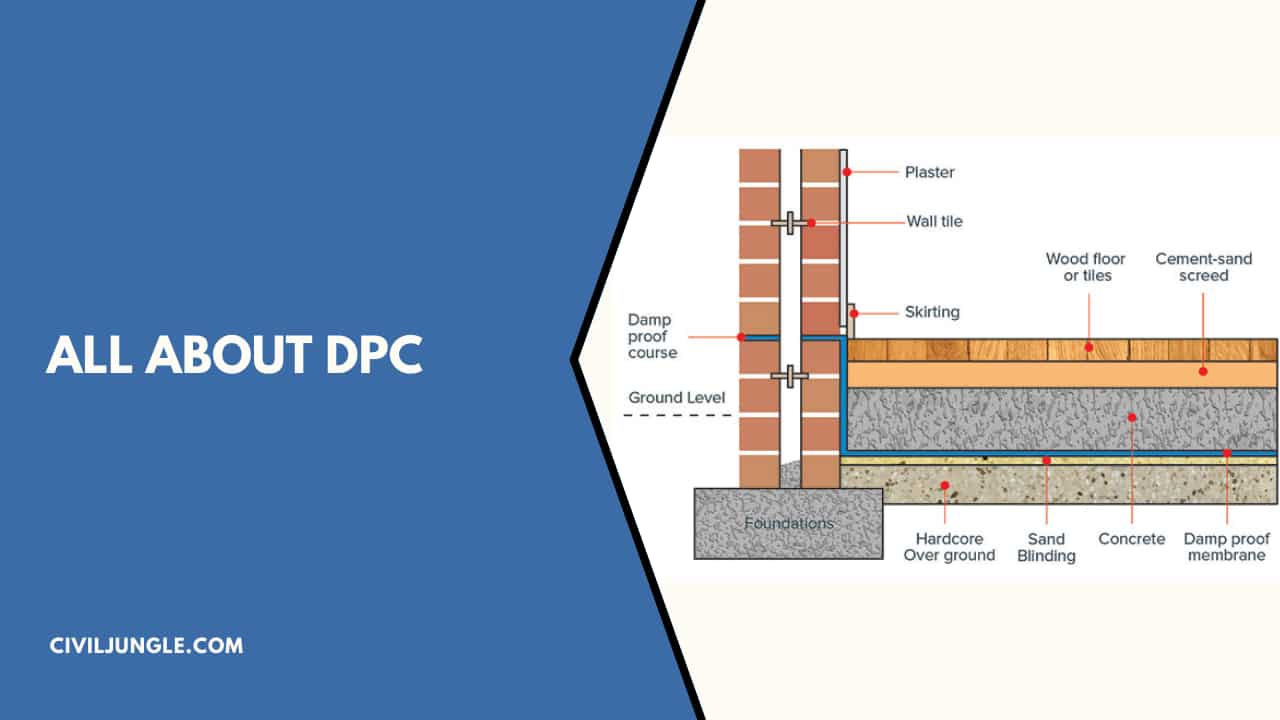
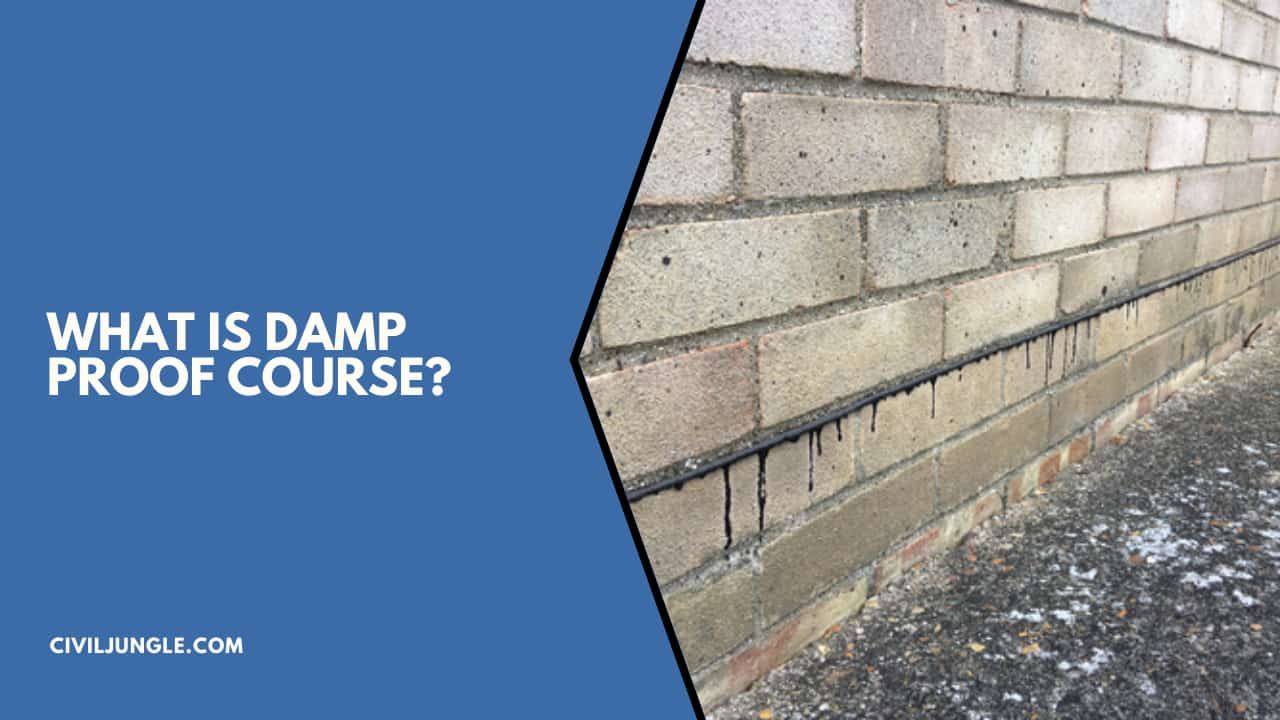
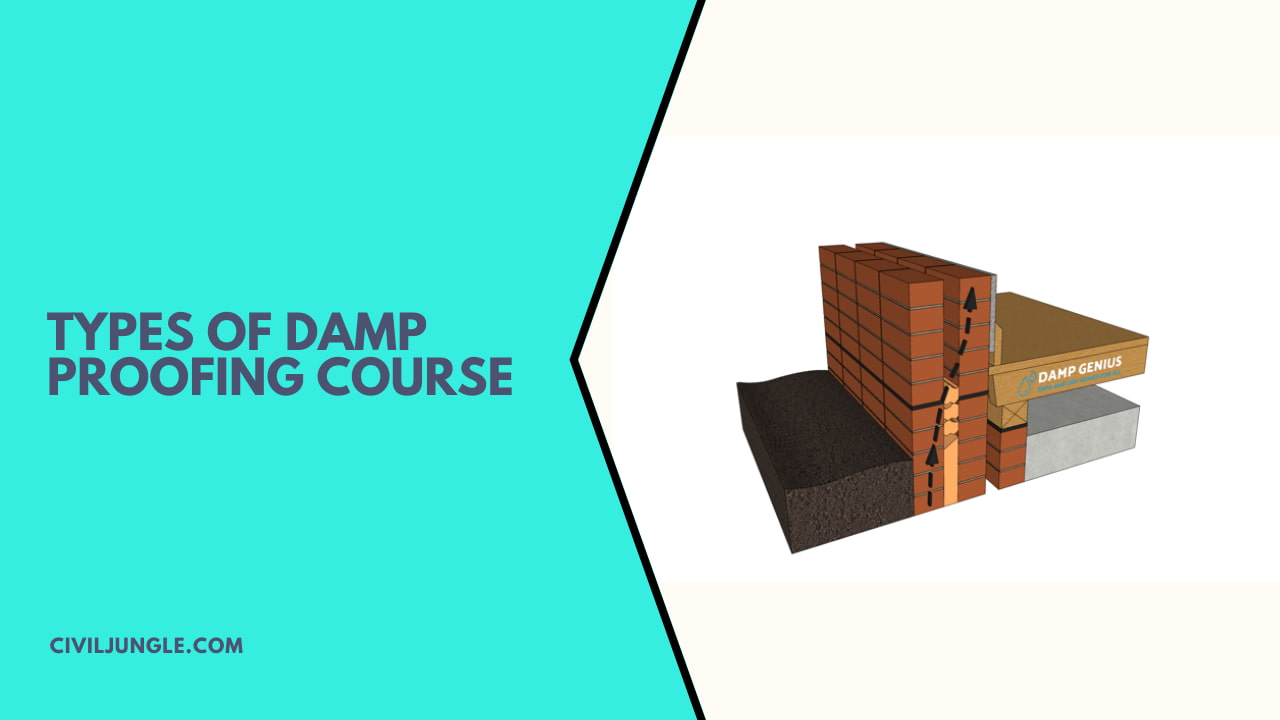
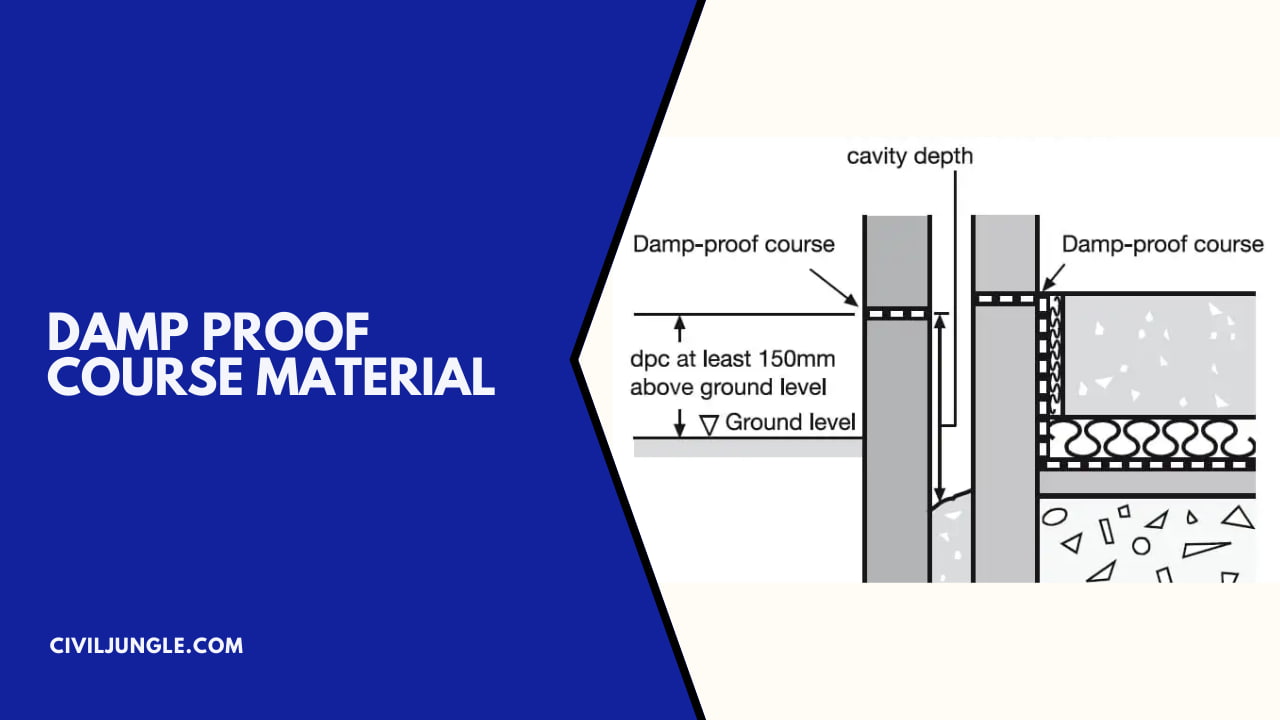
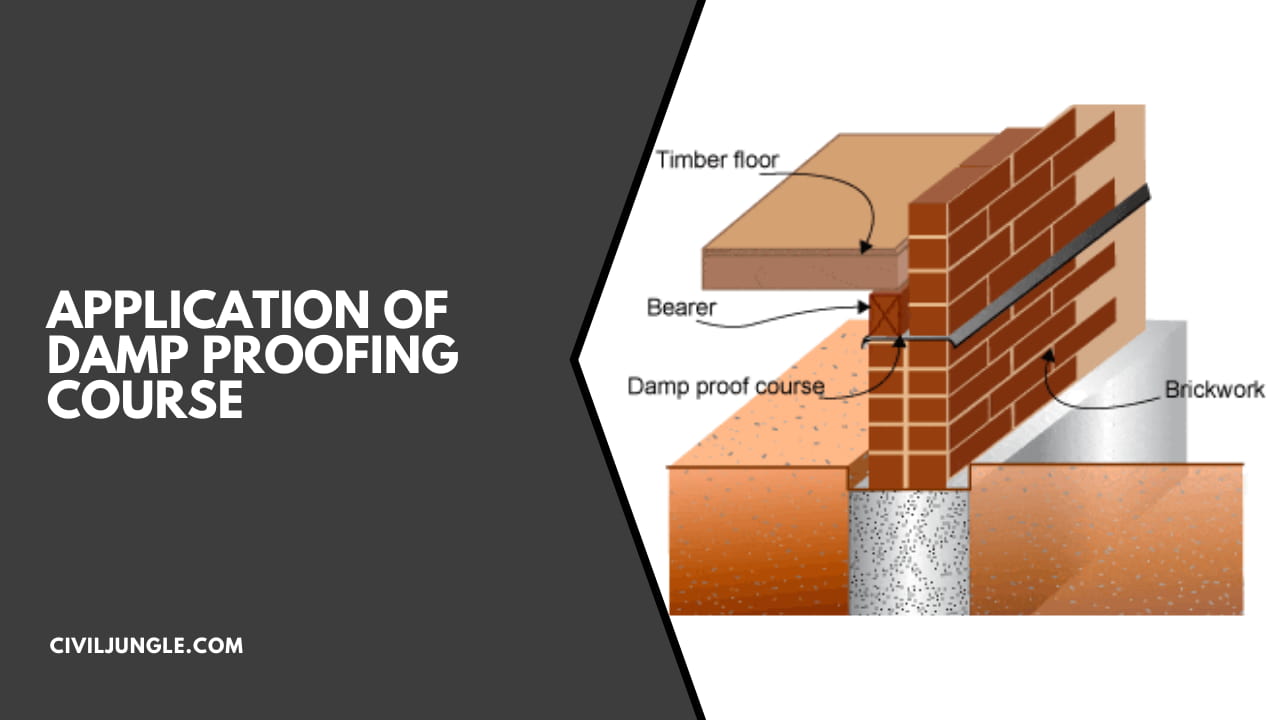
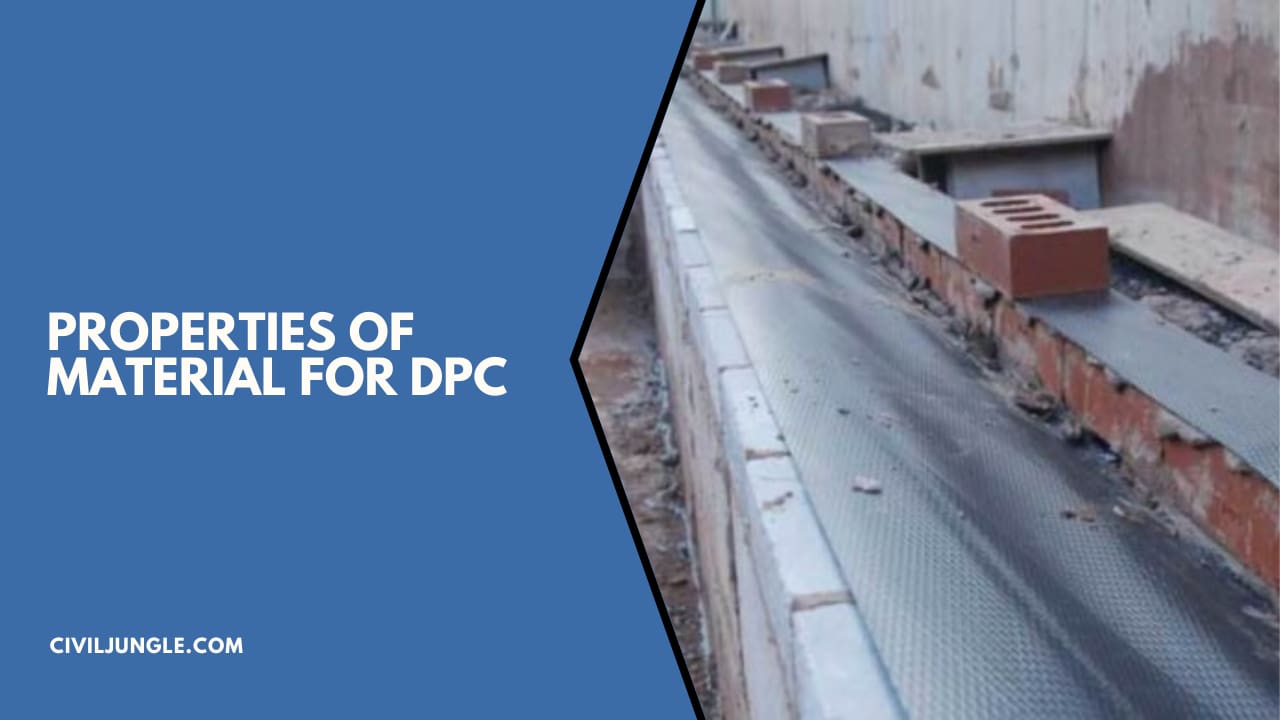
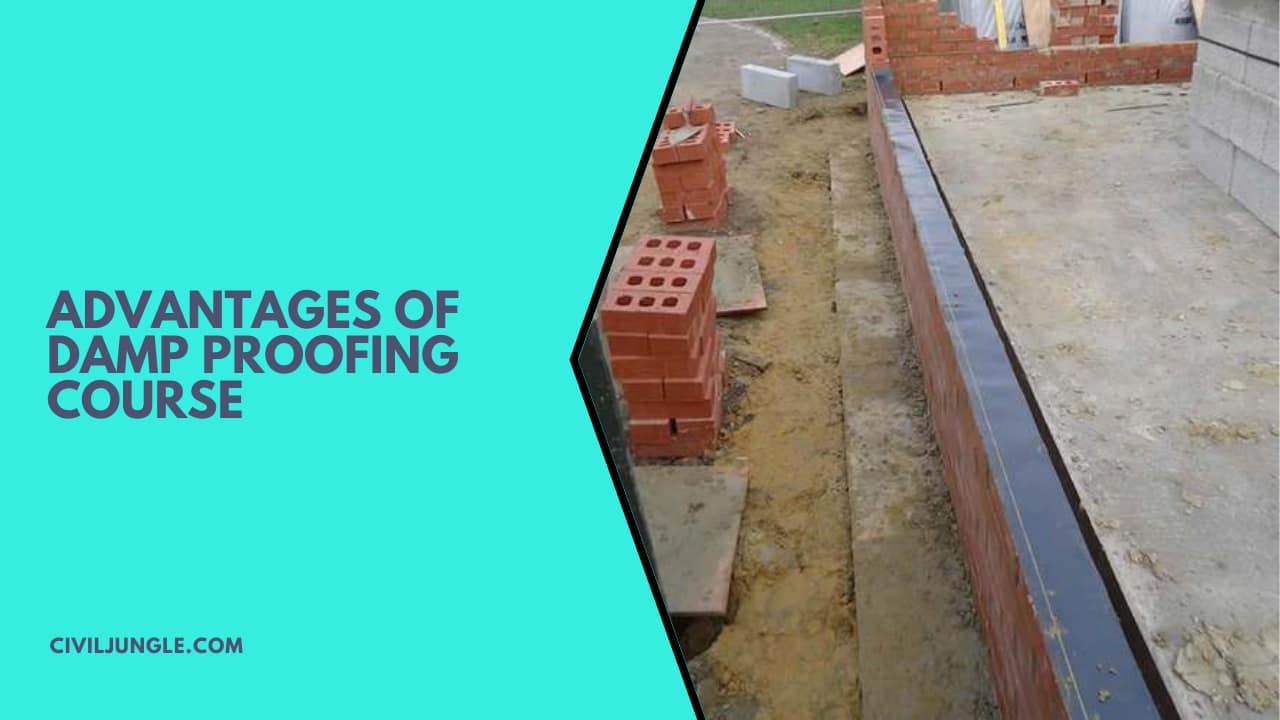
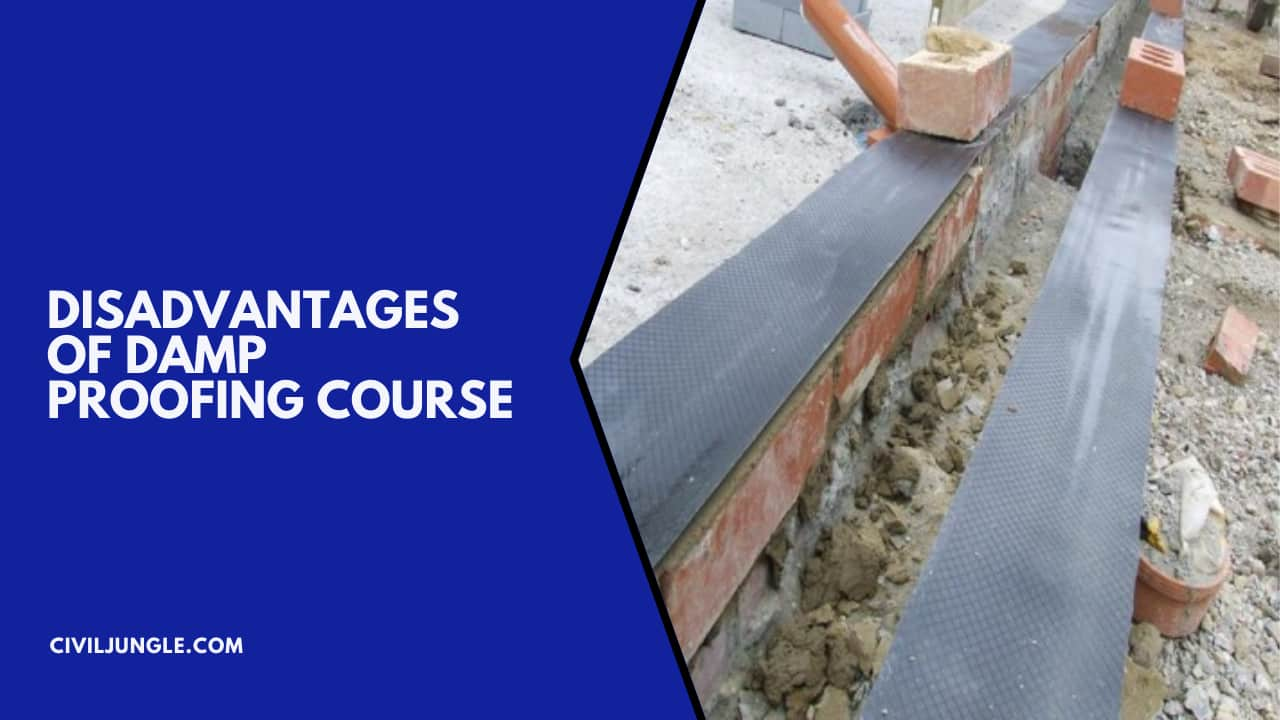
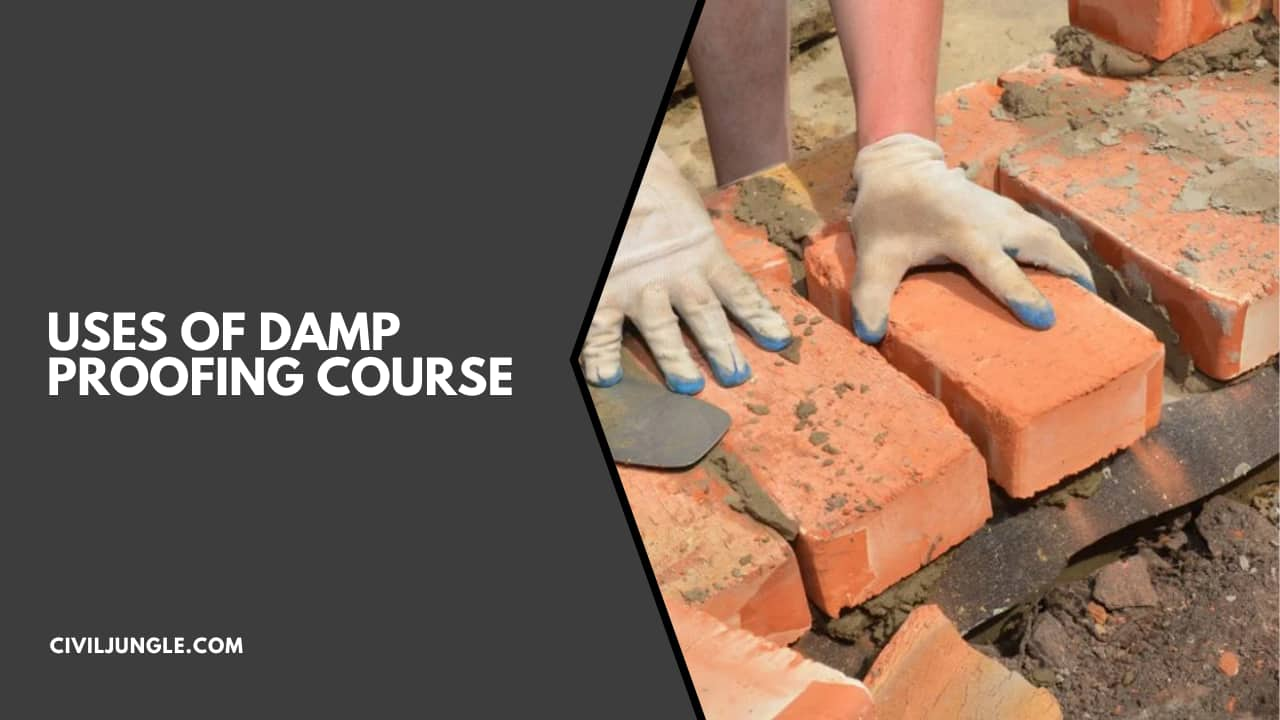

Leave a Reply